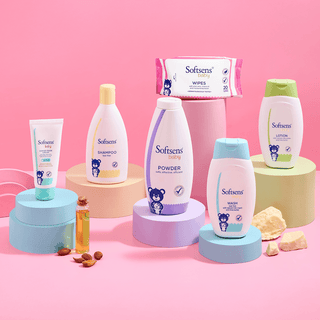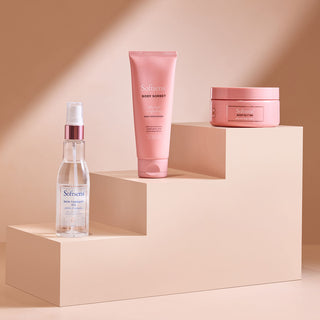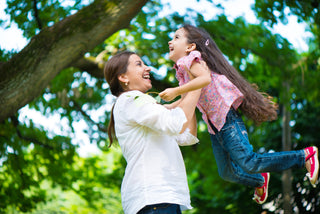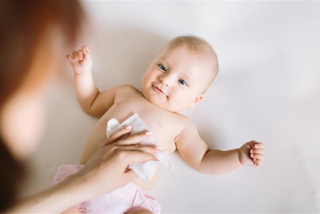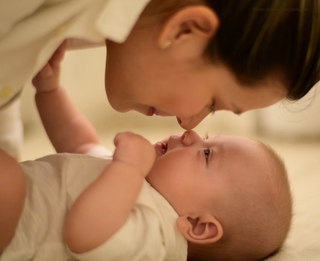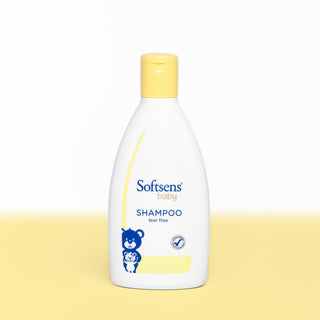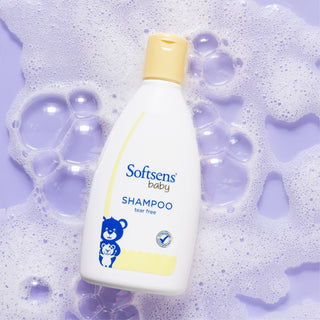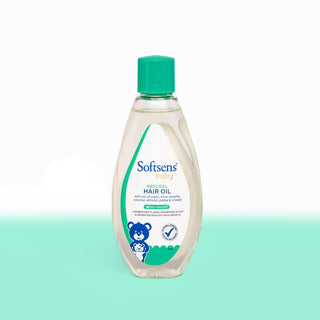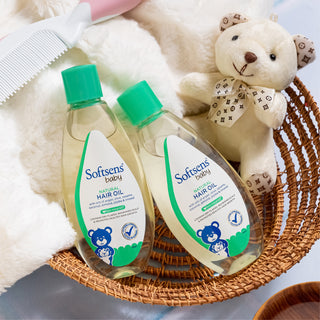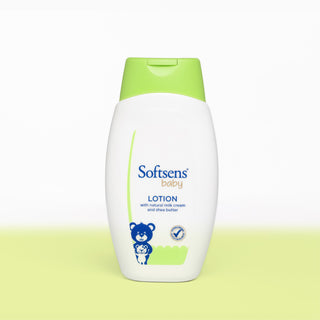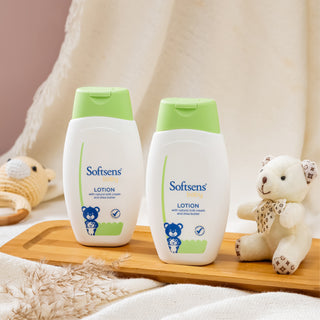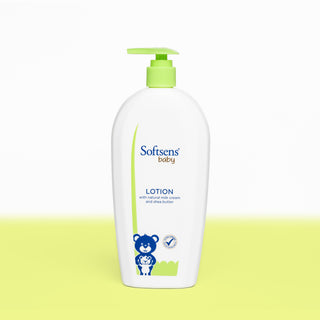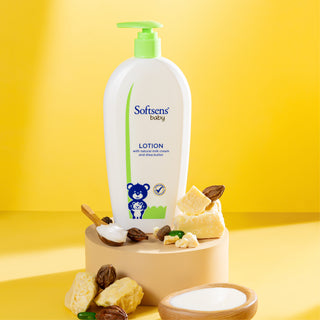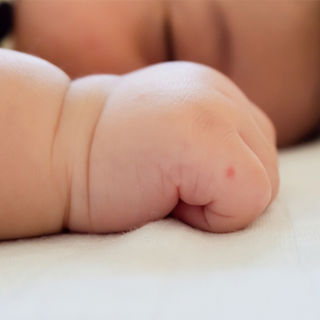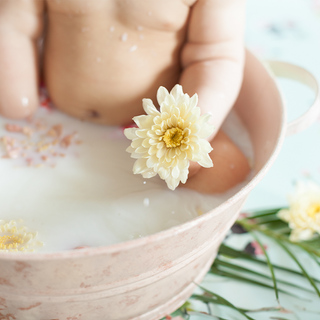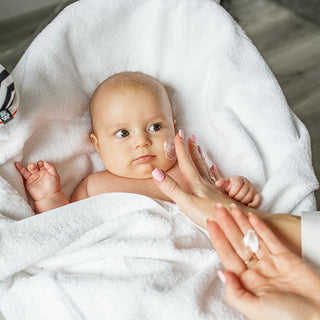
A baby's soft hair is a sight to behold, and keeping it healthy and nourished is a priority for many parents. Oiling is a common practice in many cultures and has been passed down through generations.The right use of a gentle and natural baby hair oil can have a multitude of benefits for your little one, right from keeping their scalp healthy and soft, to keeping their cute locks shiny, smooth and tangle-free. It is also extremely beneficial for babies with skin conditions like eczema and cradle cap. But with so much information available, it's natural to have questions: Is oiling necessary for babies? What are the benefits? Which oil is best? This comprehensive guide will address all your concerns and equip you with the knowledge to make informed choices about oiling your baby's hair. Here's everything we'll cover:
-
The Benefits of Oiling Your Baby's Hair
-
Things to Consider Before Oiling
-
Choosing the Right Oil for Your Baby
-
The Oiling Process
-
Additional Tips
-
When to Avoid Oiling
-
Beyond the Basics: Frequently Asked Questions (FAQs)
The Benefits of Oiling Your Baby's Hair:

Let's take a look at the main benefits of oiling your baby's hair:
-
Moisturization: Imagine a baby's scalp brand new, soft, and perhaps a little dry. This dryness can sometimes lead to the development of "cradle cap," characterized by yellowish, crusty patches. Oiling comes to the rescue! Natural oils act as a protective barrier, locking in essential moisture and preventing dryness. This keeps your baby's scalp comfortable and prevents the formation of cradle cap flakes.
-
Reduces Cradle Cap: Cradle cap, while harmless, can be a source of irritation for your little one. The gentle massage that accompanies oiling plays a crucial role here. As you massage the oil onto your baby's scalp, it helps loosen the cradle cap flakes, making them easier to remove during bath time. This not only soothes any discomfort your baby might be experiencing but also promotes a healthy scalp environment.
-
Stimulates Scalp Circulation: A healthy scalp is the bedrock for healthy hair growth. When you gently massage your baby's scalp with oil, you're not just promoting relaxation, you're also stimulating blood flow. This increased circulation brings essential nutrients to the hair follicles, creating a favorable environment for hair growth. With regular oiling, you might even notice your baby's hair growing stronger and healthier.
-
Strength and Shine: Regular oiling not only strengthens hair follicles but also adds a natural, healthy shine to your baby's hair. The oils replenish the scalp's natural oils, which can be lacking in newborns. This provides much-needed nourishment for the hair shafts, leading to stronger, healthier hair with a beautiful, natural luster.
-
Bonding Relaxation: The act of oiling your baby's hair can be a beautiful bonding experience. The gentle massage with warm oil creates a calming and soothing sensation for your baby. It can become a cherished part of your nighttime routine, helping your little one unwind and drift off to sleep peacefully. This quiet time spent together strengthens the connection between you and your baby, creating lasting memories.
By incorporating oiling into your baby's routine, you're not just caring for their hair, you're nurturing their overall well-being. It's a simple yet powerful practice that offers a multitude of benefits for your precious one.
Things to Consider Before Oiling:
-
Baby's Age: Oiling can be started as early as the first few weeks after birth. However, it's always best to consult your pediatrician before introducing any new products to your baby's routine.
-
Scalp Sensitivity: Some babies may have sensitive scalps. Patch test a small amount of oil on your baby's inner arm before applying it to the head. If there's no redness or irritation, it should be safe to use on the scalp.
-
Frequency: Start with oiling your baby's hair once or twice a week. You can adjust the frequency based on your baby's individual needs and the climate.
Choosing the Right Oil for Your Baby:
Here are some key points to keep in mind while choosing your baby's hair oil.
-
Natural Gentle: Always opt for natural, cold-pressed oils that are gentle enough for a baby's delicate scalp. Avoid mineral oil as it can clog pores and hinder hair growth.
-
Common Choices: Here's a breakdown of some popular baby hair oils and their benefits:
-
Coconut Oil: A popular choice due to its moisturizing and antimicrobial properties. It can also help combat cradle cap.
-
Mineral Oil: While readily available, it's not recommended as it can clog pores and prevent natural scalp sebum production.
-
Olive Oil: Extra virgin olive oil is a good source of vitamins and antioxidants, but its thicker consistency may not be ideal for all babies.
-
Sesame Oil: Rich in Vitamin E and known for its scalp-soothing properties. However, it has a nuttiness to the scent, so be sure your baby isn't allergic to sesame seeds.
-
Almond Oil: Lightweight and easily absorbed, almond oil is a good option for babies with sensitive scalps. However, be cautious if there's a nut allergy in the family.
-
-
Use a Specially-formulated Baby Hair Oil: Safely oil your baby's hair by using a product specially formulated for this purpose like the Softsens Baby Natural Hair Oil. Here are some reasons why a specially formulated baby hair oil might be a better choice than raw, natural oils for your baby:
-
Gentleness: Baby hair and scalps are extremely delicate. Raw, natural oils like coconut oil or olive oil can be too harsh and potentially irritate a baby's sensitive skin. Specially formulated baby hair oils are made with gentle ingredients that are less likely to cause irritation.
-
Blends for Specific Needs: Baby hair oil formulations often combine several natural oils, each with specific benefits. For example, your Softsens Baby Natural Hair contains jojoba oil for scalp balance, almond oil for soothing, and coconut oil for moisture. This blend provides a wider range of benefits than a single raw oil.
-
Hypoallergenic Formulation: Many baby hair oils are hypoallergenic, meaning they are less likely to trigger allergies. This is crucial since babies have developing immune systems and can be more sensitive to allergens. Raw, natural oils may contain unknown allergens.
-
Safety Testing: Reputable baby hair oil brands conduct safety tests to ensure their products are safe for use on infants. Raw, natural oils haven't undergone this process and may contain impurities.
-
-
Consult a Pediatrician: If you have any concerns or questions about which oil is best for your baby, consult your pediatrician. They can provide personalized advice based on your baby's specific needs.
What Makes Softsens Natural Hair Oil Perfect for Your Baby's Scalp Care?
To help you care for your baby's scalp hair, we formulated the Softsens Baby Natural Hair Oil- a bio-nourish blend of 7 natural seed oils to gently protect and nourish baby's delicate locks scalp. This all-natural formulation is hypoallergenic, clinically tested in Europe, absolutely safe for use on infants, made without any parabens, sulfates and harmful chemicals in a world class GMP certified facility Here's a look at what we put inside this nourishing hair oil and the advantages of each of these ingredients:
Olive oil: Moisturizes scalp, loosens dry flakes, and reduces the effects of cradle cap.
Linseed oil: Nourishes hair to promote soft, smooth shiny locks.
Coconut Oil: Removes sebum build-up from follicles and prevents protein loss.
Sesame oil: Improves blood circulation in the scalp for healthier hair growth.
Jojoba oil: Maintains scalp's natural pH balance.
Argan oil: Conditions hydrates hair to improve elasticity.
Almond oil: Soothes and cures scalp inflammation.
The Oiling Process:
-
Preparation: Choose a gentle oil appropriate for your baby like the Softsens Baby Natural Hair Oil . Prepare a warm towel and a soft brush.
-
Warm the Oil: Gently warm a small amount of oil using a double boiler method. Never heat the oil directly, as it can get too hot.
-
Scalp Massage: Apply the warm oil to your fingertips and gently massage your baby's scalp in circular motions. Start at the hairline and work your way towards the crown.
-
Distribution: Once the scalp is covered, use a soft comb or brush to distribute the oil evenly through the hair.
-
Leave-in or Wash: You can leave the oil on your baby's hair for 30 minutes to an hour, or overnight for deeper treatment. Wash your baby's hair with a gentle baby shampoo like Softsens Tear-free Baby Shampoo afterwards.
-
Towel Dry: Gently pat your baby's hair dry with a soft towel. Avoid rubbing, as this can irritate the scalp.
Additional Tips:
-
Less is More: Start with a small amount of oil and avoid over-oiling, which can clog pores.
-
Test Temperature: Always check the oil temperature before applying it to your baby's scalp. It should be lukewarm, not hot.
-
Bath Time is Oiling Time: A convenient time to oil your baby's hair is before a bath. The warm water helps loosen flakes and makes rinsing the oil out easier.
-
Maintain Hygiene: Keep the surface area you use for oiling clean and washed to prevent the spread of bacteria.
-
Not Mandatory: While oiling offers many benefits, it's not mandatory for healthy hair growth. If your baby has healthy hair and scalp, you may choose not to oil it.

When to Avoid Oiling:
-
Open Wounds or Scalp Conditions: Avoid oiling your baby's scalp if they have any open wounds, eczema, or other scalp conditions. Consult your pediatrician for proper treatment.
-
Excessive Oil Production: If your baby's scalp naturally produces a lot of oil, oiling may not be necessary and could even clog pores.

Beyond the Basics: Frequently Asked Questions (FAQs):
-
Can I use essential oils in my baby's hair oil?
No, essential oils are not recommended for babies. They can be very potent and irritate a baby's delicate skin.
-
What if my baby hates having their head touched?
Some babies may not enjoy having their scalp massaged. Start with a very gentle touch and focus on applying the oil without extensive massaging. You can also try oiling during a diaper change or bath time when they're already relaxed.
-
How long will it take to see results from oiling?
Results from oiling can vary depending on your baby's hair and scalp condition. Consistency is key. With regular oiling, you may notice improvements in scalp hydration and overall hair health within a few weeks.
-
What if my baby's hair falls out after oiling?
It's normal for babies to lose some hair in the first few months after birth. This is part of the natural hair growth cycle. Oiling shouldn't cause excessive hair loss. If you're concerned about hair loss, consult your pediatrician.
Oiling your baby's hair is a time-honored tradition with potential benefits for scalp health and hair growth. However, it's not a one-size-fits-all approach. Consider your baby's individual needs and consult your pediatrician before starting any new routine. With the right oil and gentle application, oiling can become a calming and bonding experience for you and your precious little one.
With this comprehensive guide and these helpful tips, you can embark on the oiling journey with confidence, nurturing your baby's precious locks and creating beautiful memories along the way.

